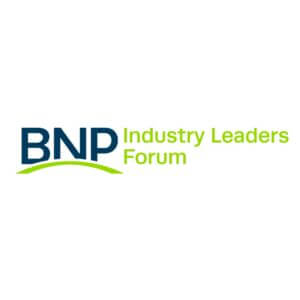System check: How technology, policy, and infrastructure are transforming care
The Partnership
May 21, 2025
Blog Categories
 Healthcare and human services organizations in Buffalo Niagara are confronting a convergence of rising costs, shifting regulations, and operational challenges that are redefining how care is delivered, funded, and sustained. As both essential service providers and major employers in the region, these organizations are navigating a period of significant transition with long-term implications for public health and the regional economy.
Healthcare and human services organizations in Buffalo Niagara are confronting a convergence of rising costs, shifting regulations, and operational challenges that are redefining how care is delivered, funded, and sustained. As both essential service providers and major employers in the region, these organizations are navigating a period of significant transition with long-term implications for public health and the regional economy.
In May, the Buffalo Niagara Partnership hosted its 2025 Healthcare & Human Services Industry Leaders Forum (ILF), gathering leaders made up of a cross-section of care providers, service providers and healthcare institutions to explore practical strategies for long-term sustainability and systems-level change.
Expert Presenters Included:
- Ikram Massabini, CEO, MVP Network Consulting
- Brian Smith, Vice President of Real Estate Development, People Inc
- Josh Veronica, Director of Government Affairs, Buffalo Niagara Partnership
AI and technology are reshaping operational strategies
Technology is increasingly viewed as a critical tool in meeting sector demands. Ikram Massabini, CEO of MVP Network Consulting, shared how artificial intelligence can help healthcare providers reduce operational waste and improve emergency preparedness. From automating repetitive processes to enhancing data-driven response planning, AI presents a cost-saving opportunity for organizations looking to do more with limited resources.
Built environment is a factor in service outcomes
Physical infrastructure plays a growing role in service delivery, particularly in human services. Brian Smith, Vice President of Real Estate Development at People Inc, emphasized the importance of aligning real estate investments with sustainability goals. Facility design impacts accessibility, community engagement, and long-term efficiency—factors that are becoming increasingly central to care strategy.
Federal policy changes will shape the sector’s trajectory
Understanding and engaging with federal policy changes is essential for leaders in healthcare and human services. Josh Veronica, Director of Government Affairs at the Buffalo Niagara Partnership, led a facilitated discussion focused on two key questions:


The conversation reflected deep concern about the cumulative burden of outdated or conflicting regulations. As policy continues to evolve at the federal level, advocacy and administrative agility will be essential for sustainability.
An industry that anchors the regional economy
The healthcare and human services sectors represent both the foundation of community health and a powerful driver of regional employment and investment. The insights shared at this ILF reinforce the need for innovation, infrastructure alignment, and policy awareness to ensure these sectors remain resilient and responsive in a rapidly changing environment.
The BNP’s ILF series continues throughout 2025, providing a platform for leaders across industries to address shared challenges, seize emerging opportunities, and collaborate on sustainable economic strategies.


Related Posts
Competing in a Changing Economy: The BNP Small Business Industry Leaders Forum
Small business owners are facing constant and complicated challenges, ranging from staffing shortages to rising costs. On May 18, the BNP convened the first Small Business Industry Leaders Forum (ILF) to explore shared strategies and to discuss how the sector can compete in a changing economy and shifting talent market.
Buffalo Niagara tourism builds back from Covid crash, but faces challenges
BUFFALO, N.Y. (WKBW) — As the weather gets warmer, tourism in the Buffalo Niagara region becomes more visible – whether it’s the blue ponchos at the Maid of the Mist or convention attendees making their way down Franklin street to the Buffalo Niagara Convention Center.
Understanding the Value of Visitors: The BNP Hospitality & Tourism Industry Leaders Forum
Building a positive visitor experience is a cornerstone of the Buffalo Niagara economy. Visitors to Western New York generated $2.7 billion in spending in 2021, according to an Oxford Economics Company report. Now more than ever, our hospitality and tourism sector is essential to the region’s success.
Cost of Health Care Inequity Is a Major Economic Drain on Regions
There’s a growing recognition that societal and socioeconomic factors affect the health of individuals. Known as Social Determinants of Health, these factors influence health outcomes, such as socioeconomic status, education, neighborhood and physical environment, employment, and access to health care. T





